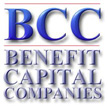 |
WHY USE AN ESOP?
Employee stock ownership plans (ESOPs) have evolved from a novel academic concept into a sophisticated tool of corporate finance that is well integrated into the mainstream of the American business community. Many publicly held corporations have used ESOPs as an employee benefits tool, as a takeover defense measure, and as a means of going private. Owners of closely held companies have used ESOPs not only for ownership succession and capital formation, but also their ultimate exit strategy. Here are some points that can be used in demonstrating why an ESOP just may be better than a sale, merger, or public offering, as well as a superior technique of corporate finance. If you sell your company to another company, you will pay an immediate capital gains tax, lose control, and probably will not be able to retain any residual equity. If you sell your stock to the public, you will incur an immediate capital gains tax, become subject to the jurisdiction of the SEC, and risk the possible loss of control. If you enter into a tax-free merger, the capital gains tax will be deferred, but you will lose control and still have all of your eggs in one basket. If you sell to an ESOP, you can defer the federal capital gains tax, maintain control of the company, retain residual equity, and invest the proceeds in a diversified portfolio of stocks and bonds without incurring a capital gains tax, all while rewarding the loyal people who helped you build your business. The foregoing ESOP benefits are achievable as a result of Internal Revenue Code Section 1042, which provides a road map for the tax-free rollover of proceeds from the sale of stock to an ESOP. This requires that the ESOP acquire 30% or more of the common equity and that the seller has had at least a three-year holding period. The seller must reinvest the proceeds in other U.S. domestic securities within a period of 12 months. More benefits: An ESOP can also enable a corporation to finance the purchase of its stock at a lower cost than a conventional stock redemption. An ESOP creates a direct link between employee productivity and employee benefits. In many companies, an ESOP may be a more effective employee incentive plan than a pension or profit sharing plan. It may also be possible to as much as triple the company's contributions and tax deductions. An ESOP can facilitate and provide a means to finance acquisitions. ESOPs also have numerous uses in public companies. An ESOP can enable a public company to go private, to finance a competitive tender offer, to facilitate a leveraged buyout, or assist in defending itself against an unfriendly takeover. ESOP loans can be obtained at below market rates of interest for the purpose of facilitating tax-free rollovers, going-private transactions, leveraged buyouts, and other ESOP transactions. Qualified lenders, will often take into consideration the increased cash flows available under an ESOP structure. An ESOP generally keeps the company locally owned and controlled. 09001834 |